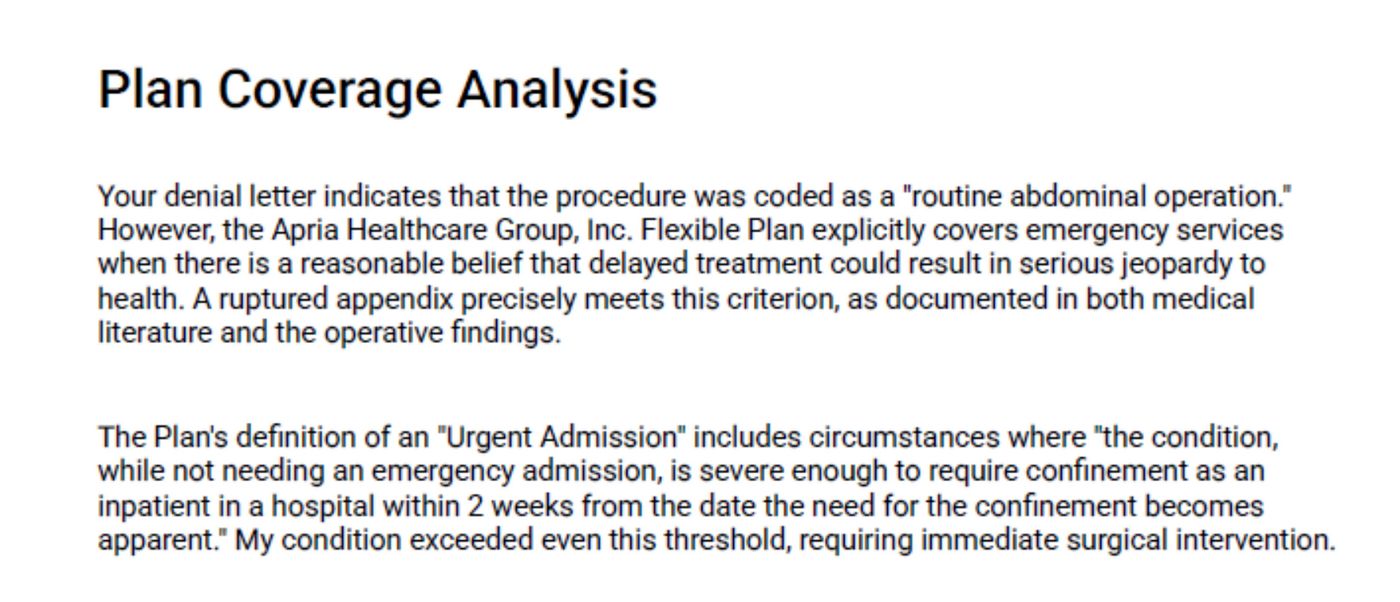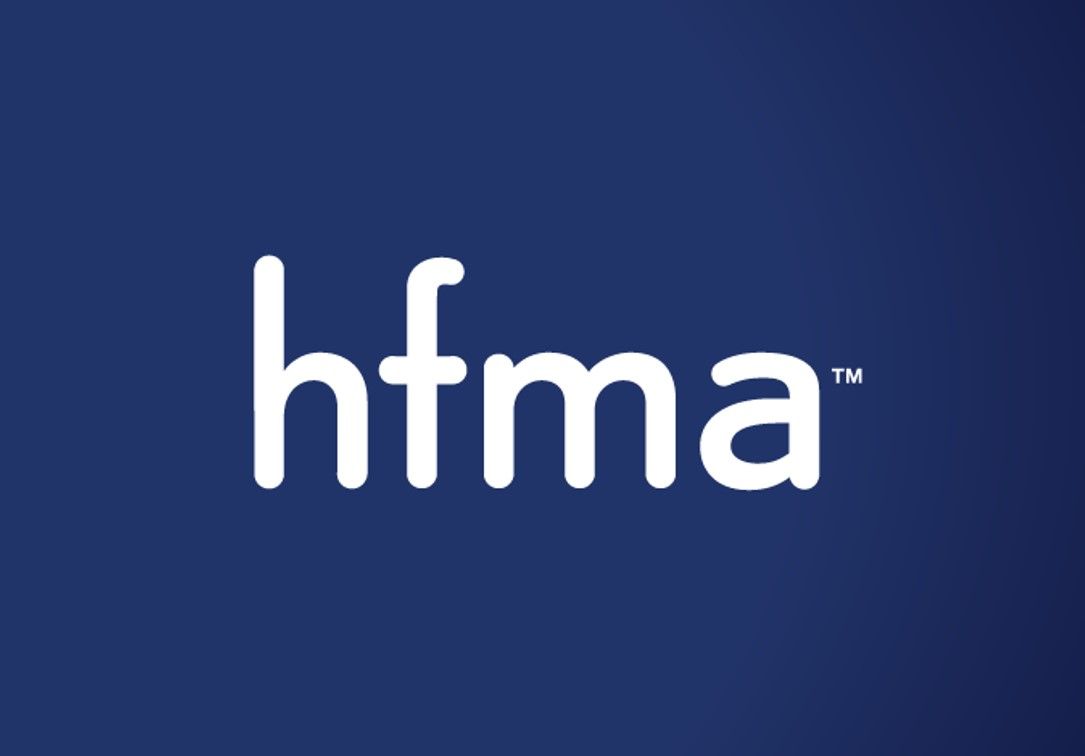How Neurology Clinics Are Fighting Step Therapy Denials & Boosting Revenue with Free AI Appeals

Neurology clinics face a mounting financial and clinical crisis that threatens both patient outcomes and practice viability: step-therapy requirements that delay critical treatments while simultaneously devastating revenue cycles. In 2025, neurological practices report that 35-45% of their prescription denials stem from step-therapy protocols, where insurers mandate patients try—and fail—less expensive medications before approving clinician-recommended treatments.
The American Academy of Neurology (AAN) documents that step-therapy delays affect 91% of neurologists, with the average delay lasting 2-4 weeks for initial appeals and extending to 3-6 months for complex cases. For patients with progressive conditions like multiple sclerosis, Parkinson's disease, or epilepsy, these delays aren't mere inconveniences—they represent irreversible disease progression and permanent neurological damage.
The financial impact proves equally devastating. Denied medications mean delayed or abandoned procedures, lost infusion revenue, and administrative costs that consume 15-20% of practice resources according to the Medical Group Management Association (MGMA). Neurology practices lose an estimated $250,000-$500,000 annually to step-therapy denials that could be successfully appealed with proper documentation and clinical evidence.
Counterforce Health provides neurology clinics with the definitive solution: AI powered appeals technology that fights step therapy denials with zero upfront investment, recovering revenue while accelerating patient access to appropriate neurological care.
Understanding Step Therapy's hold on Neurology
Step-therapy protocols, also called "fail-first" policies require patients to try insurer-preferred medications before accessing alternatives, regardless of clinical judgment. While theoretically designed to control costs, these policies create uniquely harmful scenarios in neurology where treatment windows are often narrow and disease progression irreversible.
The Neurology-Specific Step-Therapy Landscape
Disease-Modifying Therapies (DMTs) for Multiple Sclerosis: The National Multiple Sclerosis Society reports that insurers frequently require MS patients to fail on injectable interferons or glatiramer acetate before approving newer oral medications like fingolimod or dimethyl fumarate, despite evidence showing superior efficacy and adherence. When highly active MS requires monoclonal antibodies like natalizumab or ocrelizumab, step-therapy denials can mandate 2-3 years of inadequate treatment while disease progresses.
Migraine Prevention Medications: CGRP inhibitors (erenumab, fremanezumab, galcanezumab) revolutionized migraine prevention, yet insurers impose step-therapy requiring failure of 3-5 older medications including beta-blockers, anticonvulsants, and tricyclic antidepressants. The American Headache Society documents that these older medications have 40-60% discontinuation rates due to adverse effects, forcing patients through months of ineffective treatment.
Epilepsy Management: Anti-seizure medications require precise matching to seizure type, patient genetics, and comorbidities. Step-therapy protocols that mandate generic trials ignore these complexities. The Epilepsy Foundation confirms that inappropriate medication switches triggered by step-therapy increase seizure frequency in 25-30% of stable epilepsy patients.
Parkinson's Disease Therapies: Advanced Parkinson's treatments including extended-release formulations, MAO-B inhibitors, and COMT inhibitors face routine step-therapy denials. Research published by the Parkinson's Foundation shows that delayed optimization of Parkinson's medications accelerates motor complications and reduces long-term treatment efficacy.
The Revenue Cycle Impact of Step Therapy Denials
Step-therapy denials create cascading financial consequences that extend far beyond the denied prescription itself:
Lost Infusion Revenue: When biologic therapies like natalizumab or rituximab are denied, practices lose infusion administration revenue averaging $1,500-$3,000 per infusion. For a practice administering 50 infusions monthly, even a 20% denial rate represents $180,000-$360,000 in annual lost revenue.
Abandoned Care Episodes: The Centers for Medicare & Medicaid Services (CMS) data indicates that 15-25% of patients facing step-therapy delays never complete the appeal process, either accepting inferior treatment or abandoning care entirely. These abandoned episodes represent sunk costs in initial consultations, diagnostic testing, and care coordination without corresponding revenue.
Administrative Burden Costs: Manual appeals require extensive documentation gathering, peer-to-peer calls, and follow-up. The American Medical Association (AMA) calculates that physicians spend an average of 14.6 hours weekly on prior authorization activities, with neurologists reporting even higher burdens due to complex clinical justifications required for specialty medications.
Delayed Procedures and Testing: When medication management is disrupted by step-therapy denials, associated procedures—EMGs, EEGs, infusion monitoring, imaging studies—are postponed or cancelled. These downstream cancellations compound revenue losses while disrupting clinic scheduling efficiency.
How AI Powered Appeals Revolutionize Step-Therapy Fights
Counterforce Health's AI technology transforms step-therapy appeals from resource-draining administrative nightmares into systematic revenue recovery engines through several breakthrough capabilities:

Clinical Evidence Synthesis at Scale
Successful step-therapy appeals require demonstrating that clinician-recommended treatments are medically necessary despite the existence of alternatives. This demands comprehensive documentation including:
- Patient-specific contraindications to step-therapy medications
- Prior treatment failures with required medications
- Clinical evidence supporting recommended alternatives
- Disease severity indicators warranting expedited access
- Comorbidity interactions that preclude step-therapy drugs
Traditional manual processes struggle to compile this evidence efficiently. Neurologists often lack time to research current literature, cite relevant clinical guidelines, and format documentation to meet payer-specific requirements.
Counterforce Health's AI automatically extracts relevant clinical data from EHR systems, cross-references patient history against contraindication databases, and incorporates evidence from peer-reviewed neurology journals indexed in PubMed. The system generates appeal letters citing appropriate FDA labeling, clinical trial data, and practice guidelines from the American Academy of Neurology.
Payer-Specific Protocol Mastery
Each insurance company maintains different step-therapy protocols with varying exception criteria. United Healthcare's MS step-therapy requirements differ substantially from Anthem's or Aetna's protocols. Manual tracking of these variations proves nearly impossible for busy neurology practices.
The AI platform maintains updated databases of payer-specific step-therapy protocols, exception pathways, and approval criteria. When a natalizumab prescription is denied due to step-therapy, the system instantly identifies whether the payer accepts:
- Aggressive disease course as an exception criterion
- Prior gadolinium-enhancing lesions as evidence of high activity
- Failure of specific DMT classes versus individual agents
- Timeframes for documented failures (e.g., 3 months vs. 6 months)
This payer intelligence enables appeals customized to the specific criteria most likely to achieve approval, increasing overturn rates from industry-average 35-40% to 65-75% for well-documented cases according to Healthcare Financial Management Association (HFMA) benchmarking data.
Expedited Appeal Submission and Escalation
Step-therapy denials operate under strict timelines. Standard appeals must be filed within 60-180 days depending on the payer, but urgent cases—where delays risk permanent harm—qualify for expedited review requiring decisions within 72 hours to 14 days.
Counterforce Health's AI automatically identifies cases meeting expedited criteria based on disease severity, progression velocity, and clinical urgency. The system submits expedited appeals with supporting evidence demonstrating that step-therapy delays would cause:
- Irreversible neurological damage in rapidly progressive MS
- Uncontrolled seizures with risk of status epilepticus
- Severe disability progression in aggressive Parkinson's disease
- Chronic daily headaches causing occupational disability
Research from the National Institute of Neurological Disorders and Stroke (NINDS) confirms that expedited appeal pathways, when properly utilized, achieve approval rates 40-50% higher than standard reviews for neurologically urgent situations.
Peer-to-Peer Optimization
When initial appeals are denied, payers often require peer-to-peer consultations where the prescribing neurologist discusses the case with a payer medical director. These calls consume 30-60 minutes of physician time and require presentation of clinical evidence under challenging circumstances.
Counterforce Health prepares comprehensive briefing documents for peer-to-peer calls, highlighting key clinical evidence, payer-specific approval criteria, and effective argumentation strategies. The platform tracks outcomes of previous peer-to-peer calls by payer and medical director, identifying which arguments prove most persuasive with specific reviewers.
The Zero Risk Advantage for Neurology Practices
Traditional RCM solutions require substantial capital investment—typically $75,000-$250,000 for software, implementation, and training. These upfront costs create prohibitive barriers for small and mid-sized neurology practices already strained by step-therapy administrative burdens.
Counterforce Health eliminates this barrier through a performance-based model where practices pay only for successfully recovered revenue. This alignment of incentives means the platform succeeds only when practices recover denied payments—a true partnership model.
Implementation requires no IT infrastructure changes or EHR modifications, integrating seamlessly with existing practice management systems including Epic, Athenahealth, eClinicalWorks, and specialty neurology EMRs. According to the Healthcare Information and Management Systems Society (HIMSS), cloud-based RCM solutions reduce implementation timelines from 6-9 months to 2-3 weeks while eliminating ongoing maintenance burdens.
Comprehensive Step-Therapy Strategy
While automated appeals deliver immediate revenue recovery, Counterforce Health's AI capabilities enable proactive step-therapy management:
Predictive Denial Prevention: The platform analyzes prescribing patterns against payer protocols, alerting providers when prescriptions are likely to trigger step-therapy denials. This enables proactive documentation of medical necessity before submission, reducing initial denial rates by 30-40%.
Prior Authorization Optimization: AI-powered prior authorization submissions include all required clinical documentation upfront, reducing back-and-forth with payers and accelerating approval timelines from 7-14 days to 2-5 days.
Documentation Gap Identification: The system analyzes clinical notes to identify missing documentation elements that could strengthen appeals. If a patient has migraine-related disability affecting employment, the AI flags this as compelling evidence for CGRP inhibitor approval.
Formulary Intelligence: Real-time formulary data enables prescribers to identify preferred alternatives when multiple clinically appropriate options exist, reducing denials while maintaining treatment efficacy.
Appeal Performance Analytics: Practice administrators gain visibility into denial patterns by payer, medication, diagnosis, and provider, enabling strategic responses including payer contract negotiations and prior authorization workflow optimization.
Protecting Patient Care While Recovering Revenue
The ultimate value of AI-powered step-therapy appeals extends beyond financial recovery to fundamental patient care protection. The American Academy of Neurology's position statement on step-therapy emphasizes that these protocols "prioritize cost over clinical judgment" and "harm patients with neurological conditions where time is brain."
Every successful appeal represents not just recovered revenue but a patient receiving appropriate treatment without dangerous delays. When a rapidly progressive MS patient gains immediate access to natalizumab instead of waiting months through step-therapy failures, the practice prevents irreversible disability while recovering $60,000-$80,000 in annual infusion revenue.
This alignment of clinical and financial outcomes distinguishes neurology step-therapy appeals from routine RCM activities. These aren't billing technicalities—they're battles for appropriate patient care that happen to generate significant revenue when won systematically.
Implementation Roadmap for Neurology Practices
Neurology clinics ready to fight step-therapy denials systematically should follow this proven implementation pathway:
Week 1-2: Discovery phase where Counterforce Health analyzes historical step-therapy denial patterns, identifying high-value recovery opportunities and establishing baseline metrics including denial rates, appeal rates, overturn rates, and average resolution time.
Week 3-4: Technical integration with practice management systems and EHR platforms, ensuring secure HIPAA-compliant data flow and establishing automated workflows for denial identification and appeal generation.
Week 5+: Active appeals generation begins, with practices typically seeing first approvals within 15-30 days of implementation. The platform immediately addresses existing backlogged denials while establishing systematic processes for new denials.
Month 2-3: Predictive denial prevention activates as the AI learns practice-specific prescribing patterns and payer behaviors, reducing initial step-therapy denial rates.
Month 4+: Full optimization including peer-to-peer preparation, formulary intelligence, and performance analytics enabling strategic decision-making around payer relationships and contract negotiations.
The zero-risk model means practices experience value immediately without financial exposure, making implementation decisions straightforward regardless of practice size or revenue volume.
The Competitive Imperative in Neurology
As insurers deploy increasingly sophisticated step-therapy protocols and payers face pressure to control specialty pharmaceutical costs, neurology practices cannot afford reactive manual appeals processes. The Advisory Board projects that step-therapy requirements will expand to additional medication classes including newer Alzheimer's treatments, neuropathic pain medications, and migraine CGRP inhibitors, intensifying financial pressure on neurology practices.
Forward-thinking practices recognize that AI-powered appeals aren't optional enhancements—they're essential infrastructure for financial sustainability and appropriate patient care. Competitors already implementing these solutions gain decisive advantages in cash flow, patient satisfaction, and operational efficiency.
Reclaiming Control from Step Therapy Protocols
Step-therapy requirements represent one of healthcare's most frustrating intersections of administrative burden, financial pressure, and compromised patient care. For too long, neurology practices have accepted these denials as inevitable cost of doing business, lacking the resources to fight systematically for appropriate treatment approvals.
Counterforce Health fundamentally changes this equation, providing neurology clinics with enterprise level AI technology through a risk-free performance model that requires zero upfront investment. By recovering 50-60% of step-therapy denied revenue that would otherwise be lost, the platform injects substantial cash flow into practices while accelerating patient access to neurologically appropriate treatments.
The practices that thrive in coming years will be those that refuse to accept inappropriate step-therapy delays, leveraging technology to fight systematically for both revenue recovery and patient care. That decision—whether to implement AI-powered appeals or continue accepting preventable revenue losses—may ultimately determine which neurology practices flourish and which struggle under mounting financial pressure.
For neurology clinics committed to both financial health and neurological patient care excellence, the question isn't whether AI-powered step-therapy appeals make sense, but how quickly they can implement solutions already transforming competitor practices.
Sources Referenced:















